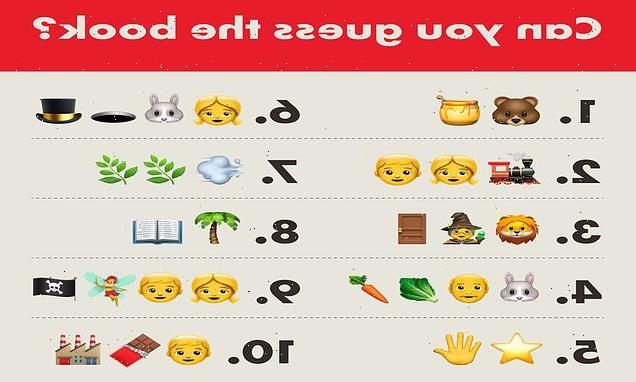Before their son was born, Paul Morgan-Bentley assumed that his experience of fatherhood would be one where sexuality was the talking point, given he and his husband, Robin, 33, had Solly via surrogate.
But the predicted homophobia and hostility never materialised – people, he says, have been nothing but lovely and accepting. However, being part of a two-dad family did reveal something shocking, if not surprising, about modern parenting.
‘Our experience was framed by the fact that there was such little expectation of any men – gay or otherwise,’ says Paul, who lives in Buckinghamshire.
‘We were turning up to vaccine appointments and the response wasn’t “You’re gay dads!”, it was “Ooh there’s a dad here!” The health visitor would call and say, “Why am I speaking to a dad?” It started straight away.’
Paul recalls going to a pharmacy to pick up a prescription for Solly and the woman serving him saying, ‘It’s great to see dads doing stuff like this.’
Paul said it made him realise how low expectations were around fathers.
In his new book, The Equal Parent, Paul, who is head of investigations at The Times, weaves his personal experiences with cold hard facts about gender roles within parenting. The result is a funny, tender and insightful myth-debunking manifesto on how we might reach sexual equality.
This praise of fathers for doing the bare minimum is something plenty of parents – especially mothers – will be painfully aware of. It’s like when people ask, ‘Is dad babysitting tonight?’, as if they aren’t the child’s father. The suggestion with such comments is that it’s jaw-dropping and novel that a man should take time out of their busy and important lives to do a spot of parenting of their own child.
‘People say to us, “You’re such great hands-on dads”,’ agrees Paul. ‘Imagine saying that a mother is “hands-on” because she bothers going to a doctor’s appointment!’
As Paul was confronted by more and more evidence of inequality in the parenting sphere – NHS systems listing the mother as the person to contact even if she wants to share that responsibility, nurseries and schools always calling the mother first – he set about looking for answers. Why is parenting so imbalanced? Is there a biological difference in the parenting instincts based on gender? Are fathers naturally less able to bond with their babies than mothers?
‘I really wanted to look at the science,’ he says (the notes section at the back of the book has pages upon pages of research papers referenced). ‘We hear clichés [around child-raising] like “a mother’s instinct” and I wanted to know if that was true. Is it the case that women are biologically more primed to be nurturing and caring?
‘There has been a lot of research in this area and it’s clear men are absolutely all capable of the brain changes that happen to mothers.’
He explains that scientists have scanned new parents’ brains and found that oxytocin – the bonding ‘love’ hormone – is sparked by pregnancy in mothers but they also found that with fathers, after interaction with the baby, it didn’t take long for the oxytocin levels to catch up.
He also looked closely at the discourse around babies waking at night and how mothers wake with them, supposedly because they are primed to. But, as he discusses in The Equal Parent, this is not the full story.
Yes, when new parents’ brains are scanned, the amygdala – the part that alerts us to danger – in new mothers is four times as large as that of new fathers.
However, scientists in recent years have done the same scans on gay fathers, with astonishing results.
‘They found that whoever is the primary carer, their brains change in exactly the same way as new mothers – by enlarging,’ says Paul. ‘That sounds complex but all it is is responsibility – when you know no one else is going to do it and it’s all on you, you don’t sleep as well. It’s not to do with sex, it’s all about responsibility.
‘The problem right now is that the balance is wrong,’ he adds. ‘It was clearly wrong in the 1950s too, but there was a fairer division of labour as women took care of home and men took care of the profession. What’s happened is that we expect more of women at work but we haven’t done the second half of the revolution, which is men doing more caring.’
This imbalance begins on the very first night of a baby’s life.
‘What happens in the UK is most hospitals chuck dads out and they can come back in visiting hours,’ he says. ‘What message does that send to everyone about the weight of responsibility?’
What advice does he have for anyone wanting to parent equally?
‘I think it’s really important to have individual periods of parental leave,’ he says, explaining that he took the first six months and his husband took the second.
‘I know lots [of straight couples] do it together and that’s a really lovely time but what scientists say happens in this period is that the dad becomes a helper to the mum.’
He acknowledges that for many couples a 50/50 split is not always possible – some weeks are going to be more hectic for one parent than the other – but what he thinks is crucial is that both parents have the ability to do everything.
‘Sharing things equally means when you are at work you can completely focus – you aren’t being interrupted by calls from home. You should be able to switch off when you’re not there. I can be at work knowing that I don’t have to worry about Solly and Robin whatsoever.’
For many parents this means one relinquishing control and the other preparing to make mistakes – which is not an easy thing to do.
But Paul realises that what he proposes in The Equal Parent can’t happen overnight and he is at pains to explain he’s no parenting expert.
‘There is an unfairness in society [around parenting],’ he says, ‘I just want to spark conversation.’
The Equal Parent by Paul Morgan-Bentley (Thread Books) is out now
Source: Read Full Article




